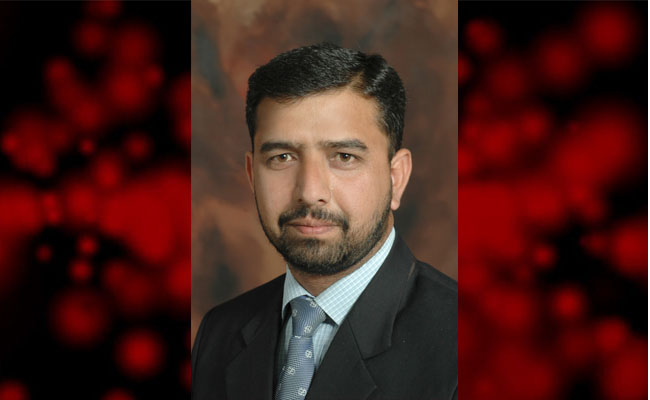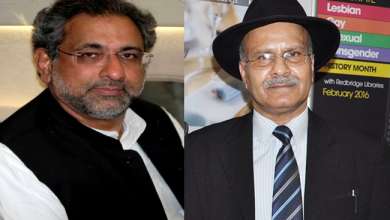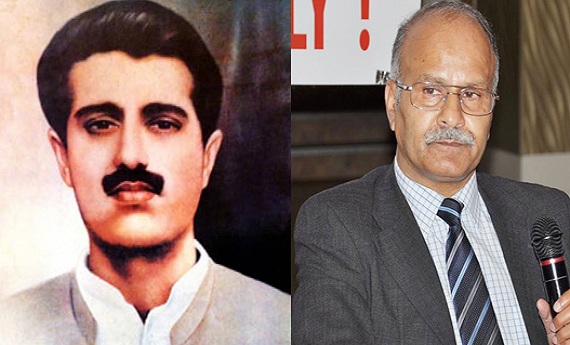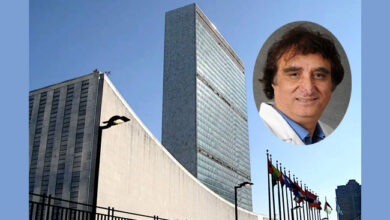A saga of Resistance movement and Foundation day of Azad Kashmir

Written by: By Zafar Iqbal
In 1947 at the time of the partition of the British Indian Empire, there were 565 princely states which were under British suzerainty but were not directly governed by the British Government. On July 25, 1947, Lord Mountbatten, the last viceroy of India, advised the rulers of these princely states to accede either to India or Pakistan. As per the partition plan all Muslim majority areas of British India were to join Pakistan after August 14, 1947, and the rest were to accede to the erstwhile British Indian dominion. Muslim constituted 78 percent of Jammu and 93 percent of the population of the valley.
It was a common perception that Jammu and Kashmir would join Pakistan owing to its Muslim population and geographical links with Pakistan. Contrary to this general principle and ignoring the wishes of the people, religious, cultural, and social relations with Pakistan, India consistently pressurized the Hindu ruler of Kashmir to accede to India. Prior to the partition, a series of events took place in Jammu and Kashmir which sparked the flames of the uprising. In 1832 Poonch revolt took place. This revolt was led by Sardar Sabz Ali Khan and Sardar Malli Khan against unjustified land tax.
The brutal forces hanged about 16 warlords on a tree at Mong district of Sudhnoti and their skins were peeled off and they were apprehended at a flat. Thus they recorded history. In 1898 a movement of land ownership rights has been launched when the people of Tehsil Bagh and Sudhnoti came to know that they were being deprived of their land ownership rights. Sardar Bahadar Ali Khan from Kharick Rawalakot took the lead and approached Sudhans, Syeds, Rajas, Abbassi, and Maldial tribes of the region and gained overwhelming support from these tribes against Raja Baldev Singh‘s Government. Sardar Bahadar Ali Khan filed a petition in Lahore High Court in 1900 and due to his efforts land ownership rights were restored through a verdict by the Lahore high court 1n 1901. Whereas, Sardar Bahadar Ali khan was poisoned to death prior to this decision and was buried at Tain district Poonch as per his will.
Later on, in the 1930s the revolt gained momentum due to consecutive incidents of violence against Muslims of the region. In April 1931 Khutba-e- Eid-ul- Adha was stopped by a Hindu sub-Inspector, babu Khem Chand which triggered protests. Similarly, desecration of the Holy Quran was committed on June 04, 1931, and on June 20, 1931, respectively. Against this blasphemy, Muslims of the Jammu and Kashmir protested and a gentleman Mr. Abdul Qadeer delivered a heated speech against blasphemy. He was arrested by police and was put on trial for treason charges. July 13. 1947 was a defining moment in the history of Kashmir when Mr. Abdul Qadeer was being trialed at Central Jail Srinagar.
Thousands of people gathered outside the jail and demanded permission to enter the jail to witness the proceedings. Heavy police contingents were deployed and they opened fire, 22 people got martyrdom and about 40 were injured. On June 03, 1947, a partition plan was recommended and it was presented in British Parliament on June 04, 1947. It became an independence act on July 18, 1947. In this situation, a representative party of the people of Jammu and Kashmir All Jammu and Kashmir Muslim Conference called a meeting to determine the future course of action but under prevailing hostile circumstances it was difficult to choose venue for this gathering. Even senior leadership was avoiding taking any risk. In this situation Sardar Muhammed Ibrahim Khan offered his residence at Aabi Guzergah Srinagar to hold meeting. On July 18-19, 1947 a meeting was held and it was chaired by Chaudhary Hameed Ullah. On July 19, 1947 a resolution was passed regarding State’s accession to Pakistan.
After this, Sardar Muhammad Ibrahim Khan managed to come to Pakistan to seek assistance for the freedom movement. In the meantime, the Maharaja had ordered his Muslim subjects to deposit all the arms they possessed. This was followed by a state sponsored campaign of RSS to eliminate the Muslim population of Jammu. As per report of Times of London, ‘237000 Muslims were systematically exterminated’. The Raja’s attempt to disarm the Muslim population was resisted in Poonch area and a freedom movement developed which grew in strength to nearly 70000 Poonchis who had served the British army during the 2nd world war. Sardar Muhammad Ibrahim Khan organized the freedom struggle and valiant people liberated Azad Jammu and Kashmir from the despotic Dogra rulers after rendering tremendous sacrifices.
The first revolutionary government was set up under the leadership of ‘Ghazi-e-Millat’ Sardar Muhammad Ibrahim Khan on this day 74 years ago with its first headquarter at Junjal Hill, Palandri. Maharaja Hari Singh left Srinagar on June 26, 1947 with his family and document of accession to India was signed by him on October 27, 1947 when the Indian Military had landed the Srinagar Airport. This accession was illegitimate as he was not legitimate ruler as historically Kashmir had been ruled by the Muslims from 14th century till early 19th century. Grandfather of Maharaja Hari singh, Dogra Gulab Singh purchased Kashmir from British for a sum of Rs. 7.5 million through treaty of Amritsar.
This treaty was itself illegitimate. Secondly he had already signed standstill agreement with Pakistan. Prior to the cancellation of this standstill agreement he was not entitled to accede to India. Thirdly, as he had fled to Jammu and as a matter of fact he was not the ruler at that time. Besides this, fourth important point is that as per partition plan all Muslim majority areas of British India were to join Pakistan. On August 5, 2019 India stripped the people of IOJK of their special rights to education, employment, acquisition of property and permanent residence which had been protected under Article 35-A. Subsequently, in the same year on October 31 and April 2 of 2020, India – without consulting Kashmiri people – annexed Indian occupied Jammu and Kashmir bringing it under direct control of Delhi, thereby introducing the New Domicile Rules respectively.
The fascist Indian government has begun settling non-native Hindus from all over India in IOJK. The plan is to transform the demography and reduce the Muslim majority into a minority. Besides this, genocide, war crimes, ethnic cleansing, crimes against humanity are taking place in IOJK. These are blatant violations of the Geneva Convention, the UN Charter and UNSC resolutions. Although, the role of the Azad Governments of the State of Jammu & Kashmir was not up to the mark as it was expected by the people of Jammu & Kashmir. However, this is its self a blessing that people here in Azad Kashmir are free, they are free to go everywhere, they are free to deliver speeches and free to write. There are five public sectors universities in AJK and great number of schools and colleges has revolutionized the education system of Azad Kashmir.
(The writer is Deputy Registrar in The University of Azad Jammu and Kashmir Contact No. 0300 9547161 E-mail : zafar.druajk@gmail.com)
Disclaimer: The views and opinions expressed or referred to in this article do not necessarily represent those of WNTV or any of its staff or editors. WNTV’s aim is to provide, so far as possible, a platform for external contributors with limited editorial intervention . Accordingly, readers are asked to note that the publication of articles on this site is not in itself to be taken as WNTV’s endorsement of any reported third party position, policy or statement.





